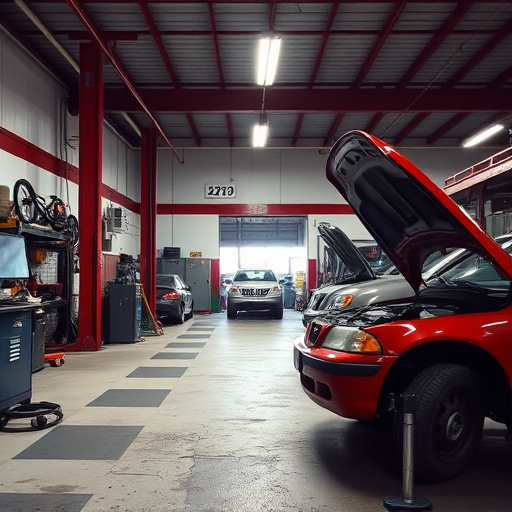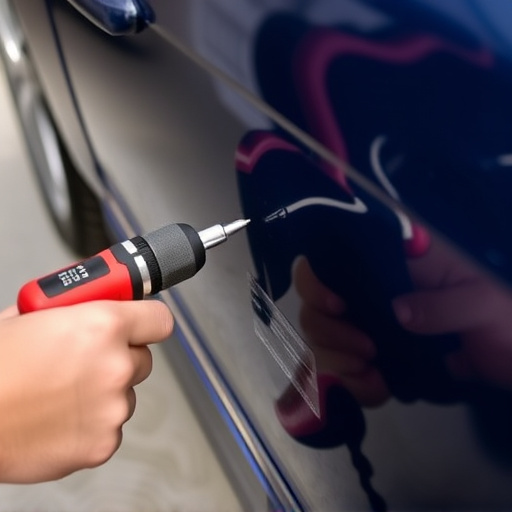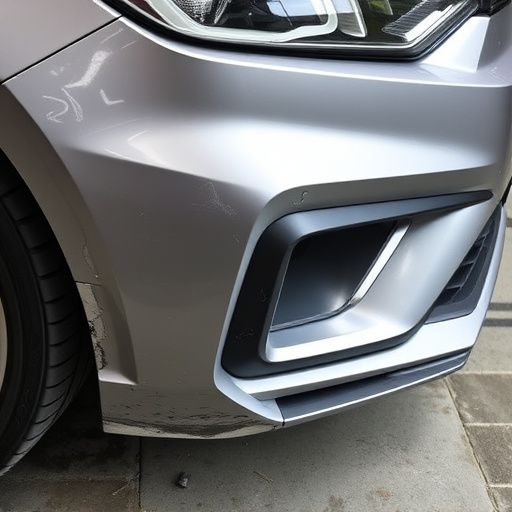In today's digital era, repair progress tracking systems are vital for fleet and commercial clients to optimize vehicle asset management. These tools enable real-time updates on repair status, streamline maintenance processes, minimize downtime, and enhance operational efficiency. By integrating GPS tracking, data synchronization, and automated reporting, businesses can proactively monitor repairs, improve communication, and provide transparent updates, resulting in more reliable vehicle restoration for successful commercial operations. Despite initial challenges, the long-term benefits of efficient repair progress tracking include improved accountability, cost reduction, and better fleet management, ensuring high operational continuity and market competitiveness.
In today’s competitive fleet and commercial landscape, efficient repair progress tracking is paramount. This article delves into the significance of robust tracking systems, offering insights into their understanding and implementation for optimal performance. We explore effective strategies tailored for fleets, highlighting benefits and challenges from a commercial client’s perspective. Discover how leveraging repair progress tracking can revolutionize asset management, enhance operational transparency, and ultimately drive business success.
- Understanding Repair Progress Tracking Systems
- Implementing Effective Tracking Strategies for Fleets
- Benefits and Challenges: Commercial Client Perspective
Understanding Repair Progress Tracking Systems

Repair progress tracking systems are essential tools for fleet and commercial clients to maintain their vehicle assets effectively. These systems provide real-time updates on the status of repairs, ensuring that vehicles are restored to optimal condition promptly. By implementing robust repair progress tracking, businesses can streamline their maintenance processes, reduce downtime, and enhance overall operational efficiency.
For instance, car paint services and autobody repairs often involve intricate processes that require meticulous attention. A well-designed tracking system allows managers to monitor each step, from initial assessment to final inspection. This not only facilitates better communication among technicians but also enables clients to receive transparent updates on their vehicles’ restoration progress. As a result, vehicle restoration becomes more efficient and reliable, contributing to the overall success of commercial operations.
Implementing Effective Tracking Strategies for Fleets

In today’s digital era, implementing robust repair progress tracking systems is paramount for fleet and commercial clients to optimize their operations. By integrating advanced technologies like GPS tracking, real-time data synchronization, and automated reporting tools, businesses can efficiently monitor the status of repairs across their entire fleet. This enables proactive decision-making, minimizing downtime and maximizing vehicle utilization. For instance, repair progress tracking allows managers to quickly identify delays caused by parts availability or mechanical issues, facilitating swift corrective actions.
Moreover, leveraging digital platforms for repair progress tracking enhances transparency and communication. Fleet owners and clients can easily access detailed updates on the status of their vehicles, including work completed, remaining tasks, and estimated completion times. This open line of information streamlines the entire process, transforming the traditional car dent removal or fender bender experience into a seamless, well-coordinated body shop service.
Benefits and Challenges: Commercial Client Perspective

For commercial clients managing a fleet of vehicles, efficient repair progress tracking offers significant advantages. By implementing robust systems to monitor car body shop repairs and vehicle dent repair processes, businesses can streamline their operations and reduce downtime. This enhances overall fleet efficiency, minimizes costs associated with extended maintenance periods, and ensures that repaired cars are promptly returned to service, maintaining a high level of operational continuity.
Despite these benefits, commercial clients often face challenges in adopting repair progress tracking. Integrating new systems requires significant initial investment and training for staff. Additionally, ensuring real-time data accuracy across multiple car repair services locations can be complex. However, the long-term gains in terms of improved accountability, reduced costs, and better overall fleet management make repair progress tracking a valuable strategy that many forward-thinking businesses are adopting to stay competitive in today’s market.
Repair progress tracking systems are indispensable tools for fleet and commercial clients, ensuring efficient management of vehicle maintenance. By implementing effective tracking strategies, businesses can streamline operations, reduce downtime, and optimize costs. While challenges exist, particularly in data security and standardization, the benefits of real-time repair progress monitoring far outweigh the obstacles. Embracing these systems allows companies to navigate the complexities of fleet management with enhanced control, transparency, and operational excellence.














